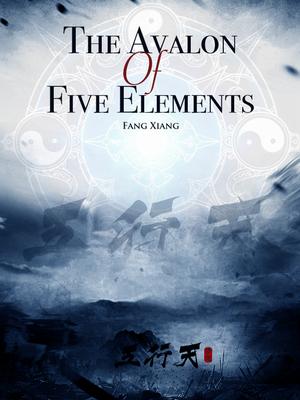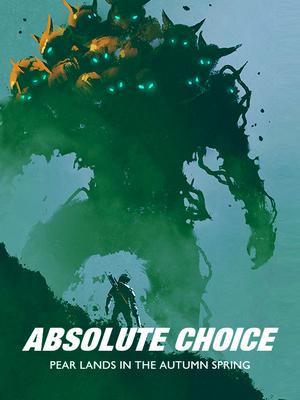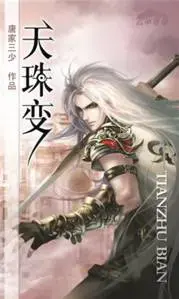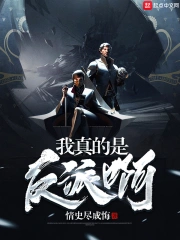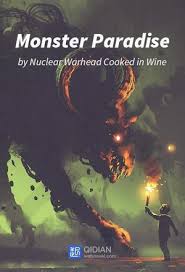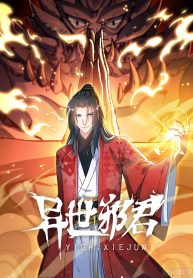The Story in 3 Sentences
A nameless youth from the desolate Old Territory, hardened by three brutal years as a laborer in the deadly Wilderness, claws his way into the prestigious Avalon of Five Elements, the last bastion of civilization against the encroaching chaos.
Driven by a primal will to survive and control his own fate, he leverages his unorthodox, beast-like combat instincts and a mind sharpened by hardship to shatter the established norms of elemental cultivation, inadvertently becoming the catalyst for a world-shaking upheaval.
What begins as a desperate personal ascent transforms into a majestic, unforeseen storm that challenges the very foundations of a society built on the ashes of a collapsed spiritual world, forcing ancient powers and new heroes alike to confront a terrifying, uncertain future.
Why It Stands Out
1. A Gritty, Grounded Genius in a World of Wonders
The protagonist isn’t a chosen one or a reincarnated deity; he’s a survivor forged in the crucible of the slums and the Wilderness. His “genius” is his relentless pragmatism, his ability to see value in discarded techniques, and his unparalleled combat sense, making his rise feel earned and deeply human amidst the fantastical setting. He’s a money-grubber, yes, but it’s a trait born of desperation, not greed, adding a layer of relatable, raw motivation that cuts through typical xianxia tropes.
2. World-Building That Breathes and Bleeds
Fang Xiang doesn’t just describe the Avalon; he makes you live in it. The novel luxuriates in details—the intricate mechanics of elemental cultivation rooted in the five natal residences, the societal structures built around these powers, the unique ecology of the Wilderness, and the fascinating, almost domestic, presence of constructs like Lou Lan. This immersive depth creates a world that feels vast, lived-in, and constantly evolving, rewarding readers who savor its rich tapestry.
3. Unpredictable Narrative Swerves and Political Intrigue
Just when the story settles into a compelling school-life and training arc, it executes a breathtaking 180-degree turn, discarding its initial setting and escalating the stakes into a complex, large-scale conflict. The narrative is unafraid to be bold, introducing intricate political battles between factions like the Assembly of Patriarchs and delving into the terrifying mystery of the Wilderness invasion, keeping readers perpetually off-balance and deeply engaged.
Characters That Leave a Mark
There’s Lou Lan – the intelligent, kind-hearted sand puppet whose primary concerns are culinary excellence and the well-being of his friend Ai Hui, evolving from a simple lifestyle companion into a crucial, loyal advisor and combatant whose belief in the protagonist is unwavering.
You’ll meet Qian Dai, who Fatty is not just a nickname but a core part of his identity, the protagonist’s oldest friend whose fiery spirit and unwavering loyalty provide a constant, grounding presence through every trial and triumph, embodying the simple, steadfast bonds forged in hardship.
And Shi Beihai? They’re the one who stands as a pillar of the old order, a powerful and stern division leader whose strategic mind and protective nature, especially concerning his daughter, place him at the heart of the Avalon’s desperate struggle for survival against overwhelming odds.
The Flaws Fans Debate
The pacing can be deliberately slow, with entire chapters dedicated to explaining cultivation techniques, locations, or flora and fauna, which some readers find immersive while others deem it tedious filler that bogs down the plot.
The abrupt, mid-arc time skips and the sudden, health-related truncation of the story at Chapter 715 leave major plotlines unresolved and character arcs feeling incomplete, frustrating readers who invested in the long build-up.
The humor, often derived from the protagonist’s money-obsessed personality or repetitive situational comedy, can feel forced and overused, failing to land for a significant portion of the audience and sometimes clashing with the story’s darker, more serious tones.
Must-Experience Arcs
Ch. 1–100: The Induction Ground Crucible – description. We follow Ai Hui’s grueling entry into the Avalon, his struggles as an overaged, talentless student, and his ingenious, poverty-driven methods for advancement, establishing his character and the novel’s unique cultivation system in a detailed, slice-of-life setting that builds a deep foundation.
Ch. 250–400: The Wilderness Storm and Political Maelstrom – description. The story’s dramatic pivot occurs as the comfortable academy life shatters. Ai Hui and his allies are thrust into the heart of the Wilderness conflict, facing terrifying new enemies while navigating the treacherous political landscape of the Avalon’s ruling factions, marking a thrilling escalation in scale and stakes.
Ch. 600–715: The Final Gambit and Unfinished Symphony – description. The narrative races towards a climax as Ai Hui’s power and influence peak, leading a desperate, final stand against the existential threat. This arc is charged with high-stakes battles and strategic maneuvering, culminating in an ending that, while abrupt, leaves a powerful, haunting impression of a world forever changed.
Killer Quotes
“Good brother! You’re really my good brother!” Fatty choked with emotions as he shook Ai Hui’s hand desperately.
“And although his swordfighting skills are great, he still has a lot to learn before he’s ready to save anyone. But I, Lou Lan, believe Ai Hui can save the world.”
“I want half!” Such an Ai Hui statement. Greedy, but not too greedy. Split the pie evenly and everyone helps to bake it.
Cultural Impact
The novel cultivated a dedicated fanbase that passionately debates its complex characters, intricate world-building, and the controversial, abrupt ending, keeping discussions alive years after its completion.
Lou Lan, the helpful sand puppet, became an iconic and beloved figure within the community, often cited as a fan favorite for his unique personality and unwavering loyalty.
It is frequently recommended alongside Fang Xiang’s “World of Cultivation” for its similarly praised character development and ambitious, if sometimes flawed, narrative structure, solidifying the author’s reputation for creating immersive, character-driven xuanhuan sagas.
Final Verdict
Start Here If You Want:
A protagonist whose strength comes from grit and street-smarts, not divine luck.
A richly detailed, unique cultivation world that feels tangible and complex.
A story that isn’t afraid to completely upend its own premise and escalate into grand, unpredictable conflict.
Study If You Love:
Deep dives into how societal structures and power dynamics evolve in a post-apocalyptic fantasy setting.
The nuanced development of supporting characters who feel like real individuals with their own motivations.
The author’s bold, sometimes messy, narrative choices that prioritize emotional and thematic impact over conventional plotting.
Avoid If You Prefer:
Fast-paced, action-packed stories with minimal exposition or world-building detours.
Neat, fully resolved endings where every plot thread is tied up.
Stories where the protagonist’s personality flaws, like an obsession with money, are played purely for light-hearted laughs without deeper context or potential annoyance.
